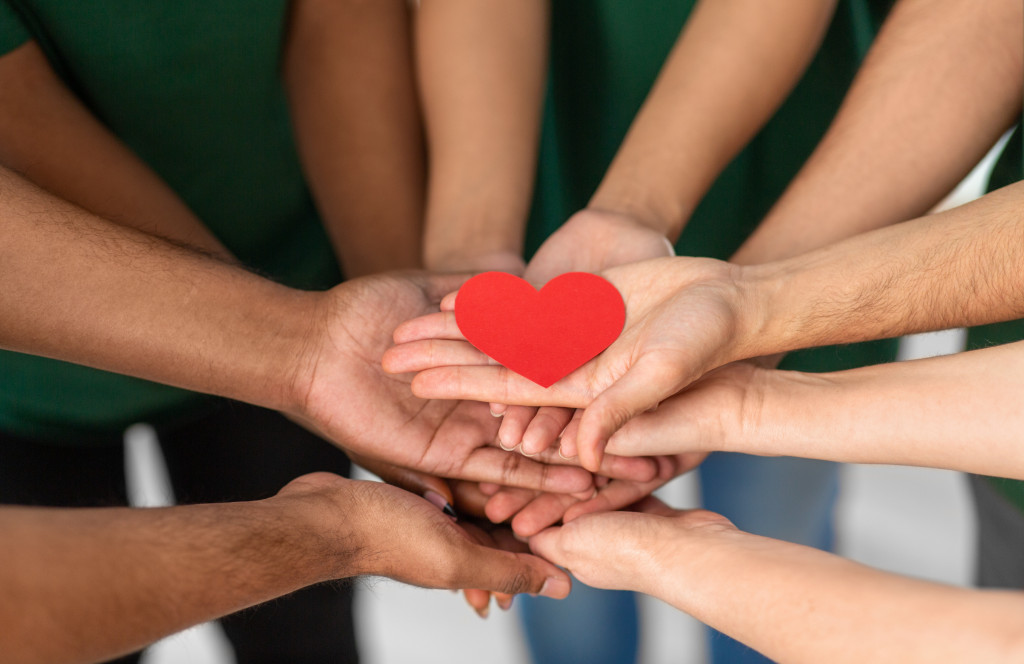- Government agencies and nonprofits can provide education and awareness about the law, host workshops and seminars, offer access to legal hotlines, and provide funding and resources.
- They can provide free or low-cost legal assistance, support community-led initiatives, and work with lawyers to provide services.
- They can also provide information about domestic violence and offer legal advice, representation, or assistance with filing reports.
- They can advocate for policy change and collaborate with community organizations to better understand and respond to community needs.
The law can be complicated, confusing, and overwhelming, and for many communities, especially underrepresented ones, navigating the legal system can be a daunting challenge. Fortunately, there are government agencies and nonprofit organizations out there that provide critical support and resources for those who need help understanding and accessing the legal system. Here’s how they can help communities overcome legal hurdles and improve their overall well-being.
Legal Education and Awareness
Government agencies and nonprofits can help communities by providing education and awareness about the law. By promoting legal education, these organizations can empower communities to take control of their legal situations. Here are some ideas:
Workshops & Seminars
Government agencies and nonprofits can also help by hosting workshops and seminars that focus on legal issues. These events can provide communities with helpful information to help them better understand the law, their rights, and how to take action if they experience any legal issues. They can also provide an opportunity for members of the community to come together to discuss and share their legal experiences.
Legal Hotlines
Government agencies and nonprofits can also provide access to free legal hotlines that are staffed by lawyers who can answer basic questions. These hotlines can provide communities with a safe space to ask questions and get professional advice from experienced, impartial participants.
Funding and Resources
Government agencies and nonprofits can also provide funding and resources to support community-led legal initiatives. This can involve providing grants or other funding opportunities to community organizations or supporting legal clinics and other legal services. By investing in community-led legal initiatives, these organizations can help sustain and grow the capacity for legal support within communities.

Legal Assistance
Many government agencies and nonprofits offer free or low-cost legal assistance to individuals and organizations in need. This can include legal advice, representation in court, or help with filling out legal forms. Here’s a rundown of the most common legal issues in communities and how organizations can help in each:
Driving Under The Influence (DUI)
DUI is a serious issue that affects not only individuals but entire communities. The effects of DUI are far-reaching and can include an increased likelihood of car accidents, increased cost of insurance, damaged community reputation, higher rates of alcohol abuse, and impaired decision-making.
Government agencies and nonprofits can help by partnering with a DUI lawyer to provide services such as screenings, assessments, and legal advice. This can help communities better understand the DUI laws in their area and protect the rights of those charged with a DUI offense.
Domestic Violence
Domestic violence is a serious issue in many communities. Government agencies and nonprofits can help by providing information about local laws and resources to help victims protect themselves or seek legal assistance. They can also host workshops that focus on domestic violence prevention and provide counseling services for those affected.
Theft & Robbery
Theft and robbery are serious offenses. Government agencies and nonprofits can help by providing information about local laws and resources to help support victims of theft or robbery and raise awareness of the issue in the community. They can also provide legal advice, representation, or assistance with filing reports with the police.

Advocacy and Policy Change
Government agencies and nonprofits can also advocate for policy change that benefits communities. This can involve lobbying for new laws or policies that address community needs or challenging existing rules or policies that are discriminatory or unjust.
For example, a nonprofit organization focused on environmental justice may advocate for stronger environmental regulations to protect low-income communities from polluting industries. By advocating for policy change, these organizations can help communities achieve systemic change and address systemic injustices.
Collaboration between government agencies, nonprofits, and communities is also crucial to successfully navigating the law. By forming partnerships with community organizations and leaders, these entities can better understand and respond to community needs.
For example, a government agency may partner with a local community center to host a legal clinic for immigrant communities, or a nonprofit organization may partner with a neighborhood association to organize a campaign for criminal justice reform. By working together, these organizations can provide more effective and holistic support to communities.
Navigating the law can be a daunting challenge for many communities, but with the support of government agencies and nonprofit organizations, access to justice is possible. Through legal education, assistance, advocacy, community partnerships, and funding and resources, these organizations can help communities navigate the legal system more effectively and achieve positive legal outcomes. By promoting legal empowerment, they can create a more just and equitable society for all.

